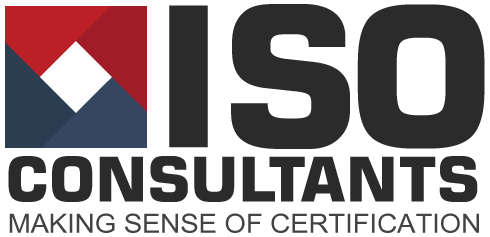Effective ISO Internal Auditor Training. Suggestions from an ISO Consultant

We recently conducted internal ISO auditor training for a major cosmetic multinational, and it caused me to reflect on what makes for good auditor training, and, hopefully, good internal auditors. One is the consequence of the other. Or should be…
Good ones can have a dramatic effect on the degree of “buy-in” the company has to the standards, quality management system and hence the effectiveness of the standard. On the other hand, I’ve consulted or some companies where the internal auditors were actually one of the sources of non-compliance in a number of areas. This stuff matters.
So, in no particular order, here are some of the common errors made around the area of Internal auditor training.
Wrong People Chosen to Participate. They need to understand the process, the wider benefit to the business, have sufficient analytical ability, and not to be seen as belonging to one particular tribal group in the company, intent on corporate ethnic cleansing. And be “salespersons”, convinced of the benefits themselves, and able to communicate at all levels, without fear or prejudice, within the organisation.
Course Content Too Long and Detailed. You are training participants to monitor and oil the machine, not redesign and rebuild it. Like many ISO-related topics,more is not always better”. There needs to be sufficient detail, but no so much to dissuade from a buy-in from participants. Benefits need to be stressed above features, without skimping on procedural rigour.
Content (Short or Long) Too Theoretical. Yes, this sounds like a repetition of my last point. Hopefully, the structure of the QMS has been designed around the needs of the business. The more strategic and theoretical side of the system should already be in place. Internal Auditor Training should be biased heavily towards the practical, the application of the QMS , which should be a firm foundation (if written properly!)
Importance of The Measurable, Achievable, Not Emphasised. Again, there’s a degree of overlap with my earlier points here. An internal auditor is very much the detective, rather than the traffic police officer. There needs to be a gentle and unobtrusive approach, but one that leads to hard evidence and facts. It’s on one hand analytical and reflective in it’s diagnosis of the QMS in action, but intensely practical in identifying non -conformance evidence. Hence, you need those with a holistic and business-centred perspective. Sell the sizzle, not the sausage, as an old sales trainer’s saying goes.
Inappropriate Trainer! Again, the balance of the theoretical and practical, a rare combination. the “buy in” to effective internal auditor training is vital. A theory merchant, long-winded, supercilious and dull, will not inspire effective internal auditing. Badly-taught auditors audit badly.Grey hair and a few corporate miles on the clock are useful things to have in a trainer. We’d like to think that we approach with professional rigour but more than one foot in hard corporate reality!
We’re happy to start where you are in this process. If you have had poor experience from internal auditors, then let’s start afresh. Conversely, if you feel that you have a good team, but that they simply need the refreshment of a new perspective, we’re equally happy to write a course for your needs, and help advise on participants. Either way, please drop us a line
Written by Colin Brown of ISO Consultants


0 Comments